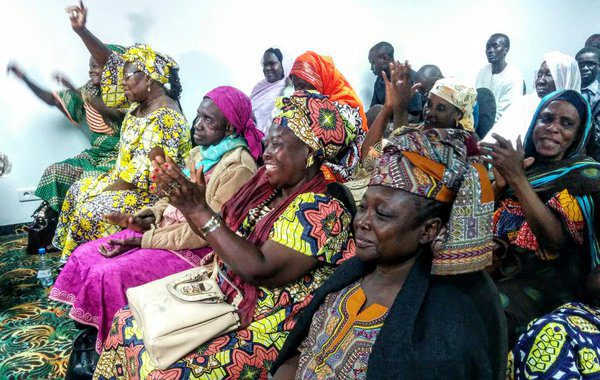Until now, women in Chad were the ones controlling the tontines, particularly among civil servants and private sector workers who are increasingly using this rotating contribution formula to meet their needs.
These usually relate to the acquisition of residential land, the completion of a house or the purchase of a vehicle.
Satisfying such needs refers to life-size tontines where the small sums that women usually pay are blissfully out of date. With their salary helping, the agents of the administration or the private sector who start in the tontines can bet for sums of up to 100,000 CFA francs per month.
To do this, the officials appoint among them a group leader to collect contributions. This is the case of Moussa, a teacher, who runs a tontine with ten of his colleagues.
“We decided to contribute 100,000 CFA francs per person. At the end of the month, we give one million CFA francs to a member of the group and this is repeated each end of the month up to ten months,” Moussa explains.
Ahmat, a member of Moussa’s group, believes that joining the tontine is better than getting a bank loan. “Here, we have no interest that weighs on us. It is as if you are saving a given amount, spread over a few months.”
A hotel worker in Ndjamena, Allaissem, who is waiting to receive money from his tontine, is already negotiating the price of a land, located in the Farcha area in the first district of the capital. After he agreed with the land owner, the young hotelier promised to pay at the beginning of the week, when he receives the jackpot of the tontine.
A bank executive, speaking on condition of anonymity, acknowledges, admittedly, the possibility for some workers to make savings via the tontine, but has some reservations about the reliability of the process. “These people find in the tontine a way to realize some personal projects. But, I have reservations about this practice, especially as it lacks an important aspect of the mechanism: security and trust,” the banker says.
For its part, Hassan Idriss, an economist describes the male tontine as a new phenomenon, accelerated by the high cost of living and the stagnation of wages in the public and private sectors.
“It is,” he explains, “a financial mechanism that allows its users to pool their savings in order to access, in turn, to a substantial capital to carry out their projects. The mechanism is mostly based on trust and the network.
Moreover, the banker argues that everything does not work quite right when it comes to contributions, to the extent that many of those who have received their tidy little sum are no longer eager to contribute for others; they may even stop altogether to do so.
Moussa echoes the banker’s words by revealing that he is obliged to “police” with some of his colleagues who, once the jackpot in their pocket, take too long to contribute.
To improve things and, above all, eager to correct this bad behavior, a mobile phone company had seen fit to create money transfer accounts for tontine members, but the initiative did not last long due to some people’s persistent dishonesty.
Flaying some tontine members for their refusal to contribute, once they get their money, Hamadou insists that he or his wife will not join a tontine. “I even forbid my wife this practice. I do not like this story, which often comes to an abrupt end between tontine members.”
Despite the reluctance of some people like Hamadou, tontines continue to proliferate in Chad, to the delight of many workers.
AHD/cat/fss/abj/APA


